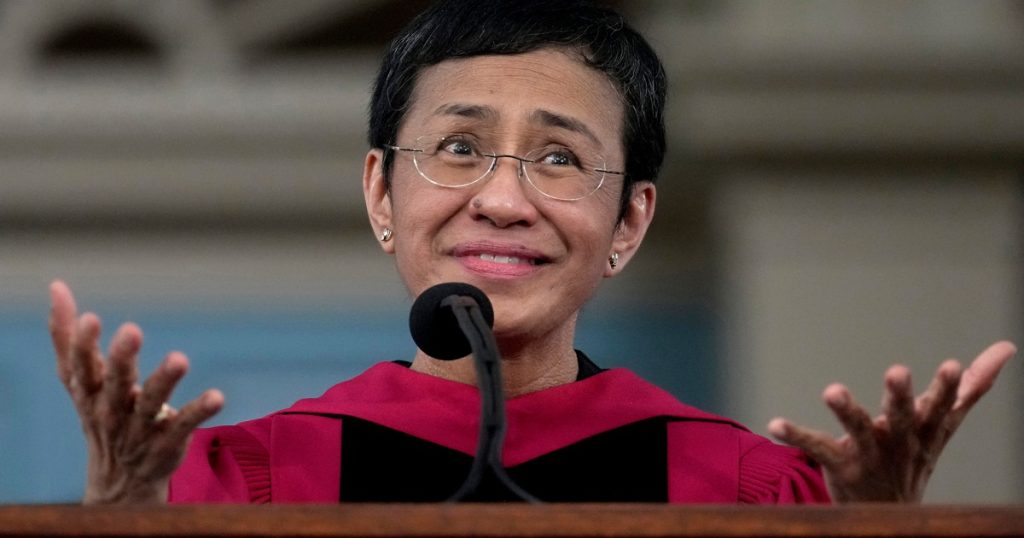As the graduation season continues, college commencements across the country are facing protests and controversies, with speeches by notable figures stirring up tense moments at these venerated events. At Harvard University, a Jewish chaplain confronted journalist and Nobel Peace Prize winner Maria Ressa after her speech for what he perceived as antisemitic remarks. Ressa’s speech touched on her experience being attacked online and accused of being antisemitic, leading to a confrontation with the chaplain. Ressa expressed solidarity with pro-Palestinian protesters during her speech, further fueling tensions at the commencement ceremony.
Ressa, who is known for defying former Philippine President Rodrigo Duterte’s attempts to shut down her news site, Rappler, was awarded an honorary doctorate by Harvard. She emphasized the importance of protests in giving voice to important issues, but highlighted the need for peaceful demonstrations. The backlash and controversy surrounding her speech at Harvard’s commencement reflect the increasing polarization and divisiveness present on many college campuses across the country. The events at Harvard are part of a larger trend of commencement speeches being met with protests and walkouts.
The controversy surrounding commencement speeches is not limited to Harvard, as comedian Jerry Seinfeld faced boos and a walkout at Duke University during his address. Seinfeld, a Jewish comedian and supporter of Israel, was met with protests from students carrying Palestinian flags and others who walked out in opposition to his presence. Despite the controversy, Seinfeld urged the students to use their privilege and emphasized the value of diverse perspectives and opinions. The incident at Duke University is just one example of the challenges faced by commencement speakers in an increasingly polarized environment on college campuses.
Another commencement speech that drew backlash was delivered by Kansas City Chiefs kicker Harrison Butker at Benedictine College. Butker, known for his conservative Catholic beliefs, addressed cultural and political issues such as President Joe Biden’s Covid-19 policies, Pride month, and abortion. His remarks, particularly those directed at female graduates, sparked controversy and criticism online. Despite the backlash, Butker’s coach and the NFL expressed support for his right to express his opinions, emphasizing the importance of diverse viewpoints.
The controversies surrounding commencement speeches highlight the challenges faced by speakers and institutions in navigating the complexities of free speech and differing opinions in today’s polarized climate. With protests and walkouts becoming more common at graduation ceremonies, speakers are increasingly under scrutiny for their remarks and positions on contentious issues. As college campuses grapple with divisive issues and political tensions, it is crucial for speakers to consider their audience and strive for inclusive and respectful dialogue.
In conclusion, the protests and controversies surrounding commencement speeches at colleges and universities reflect the broader societal divisions and tensions present in today’s world. From Harvard to Duke to Benedictine College, speeches by notable figures have sparked heated debates and disagreements, highlighting the challenges of free speech and differing viewpoints. As campuses continue to grapple with contentious issues and ideological differences, speakers must be mindful of their words and the impact they have on their audience, in order to foster a greater sense of understanding and dialogue in an increasingly polarized environment.


